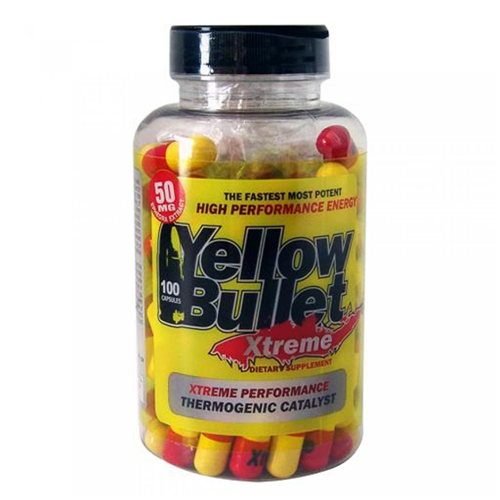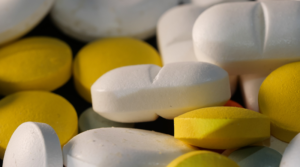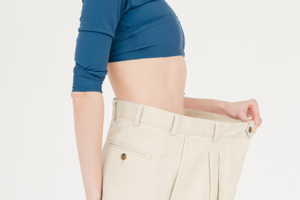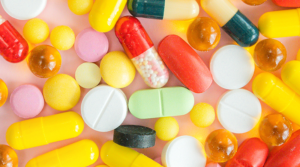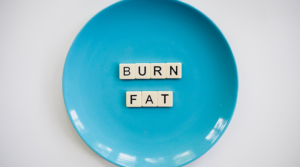Every person has seen the claims for the latest and greatest diet pills. For instance fat burners, rapid weight loss, metabolic boosters and more achieving maximum strength. The question is ephedra a good fat burner and what does that mean?
In an ephedra diet pill Webmd.com used as a reference the primary ingredient listed for fat burning is ephedra. Ephedra is the main marketed ingredient. However it is not the only ingredient in many of the different fat burners. The most common ingredients complex are caffeine and aspirin. Referred to as an ECA stack. In addition nutritional labels list herbal ingredient versions. For instance ingredients like guarana for caffeine or white willow bark for aspirin.
The FDA did ban ephedra. However there are multiple ephedra plants. Not all ephedra herbs are banned. The ephedra ban contains essentially ephedra alkaloids. Therefore no legal ephedra product can contain any ephedra alkaloids version. What is legal is herbal versions. For instance different ephedra plants legal for sale ephedra nevadensis, ephedra sinica, or ephedra viridis. These will be commonly referred to in nutritional supplement labels as ephedra extract or ephedra leaves.

So is ephedra a good fat burner?
The answer to that question is more complicated than a simple yes or no. For instance, if ephedra works great for one person and not another does that make it a good fat burner? That is main reason why for the point of this article want to stay away from any outright claims. Lets look at the different mechanisms that ephedra can work in the body and how each of them have the potential for greater ability to burn more fat.
Ephedra works in the body both as a stimulate and as a thermogenic both of which can burn more calories and essentially burn more fat. Any time a person increases energy production above the resting metabolism there is the potential to burn more fat. Different people’s diets, overall health, exercise programs, and metabolic functioning play a determining role on whether fat is the source of the excess calories burned.
Featured Fat Burner
Burn Fat Faster
Another key aspect to all health and ability to burn fat is the body’s ability to adapt. Just as you run and over time the body adapts to the ability to run faster and farther, a person’s metabolism adapts to both the ability to utilize and how stimulated from ephedra and diet pills in general.
For instance, when looking at ephedra as a good fat burner there is a good chance for most people have had positive effects of using ephedra as at fat burner. Now, the taking the same product seems to have less effect. This is also why it is common to see different ephedra products marketed as extreme fat burners as the amount of ephedra has increased for those who have adapted to lower dosages.
As ephedra is the main ingredient marketed on the bottle it is not the only ingredient often in most products. When comparing different products and the success rate you have found with them it is important to not only look at the total milligrams of ephedra per dose though also the other ingredients that may have been in the products that have worked for you.
ECA Stack
An ECA stack is a very common and popular ingredient formulation that for most people works synergistically for greater success. Because of this most ephedra products though not all are ECA stacks of ephedra, caffeine, and aspirin. Other key ingredients are synephrine, yohimbe, raspberry ketones, garnica cambogia, green tea extract, green coffee bean extract, and more.
Ephedra diet pills still sale at a rapid rate for those looking for them as effective fat burners. The key with your own experience is to pay attention to the dosages of ephedra you are taking and the other ingredients going forward as to make smarter choices on which are going to be best for you.
What Ephedra Does to the Body
Many people have questions on what ephedra does to and for the body. Ephedra is an herbal plant. However has more than one species. The United States has banned only one version. The American version of ephedra is the ephedra nevadensis plant. Secondly referred to as Mormon tea. The traditional Chinese medicine version is ephedra sinica. Also referred to as ma huang. It is the ephedra alkaloids in ephedra sinica that have been banned in the USA. Ephedra from ephedra nevadensis is legal to buy.
Ephedra has been used for years to support the following aspects of the body. The following are known uses and not an guarantee of results nor a use to treat or cure any disease. Common uses for ephedra are to fight obesity by supporting weight loss, fight allergies and hey fever, support relief from colds and chills, headache relief, and as a diuretic to prevent fluid retention.
FDA Ephedra Ban
Effective in April of 2004, the FDA imposed a ban on ephedra. Confusing to many consumers the ban consists of products containing ephedra alkaloids. The legal products available labeled under ephedra extract or ephedra leaves. These products are the herbal form of ephedra like ephedra nevadensis, ephedra viridis, and ephedra sinica. Ephedra has been marketed by some as “herbal ecstasy.” However the recreational drug herbal supplement marketing is unapproved.
How does ephedra work in the body? The primary role that ephedra plays with the body is as a stimulate. Ephedra has the ability to stimulate the heart, lungs, and nervous system. As a stimulate, ephedra has the ability to support weight loss. Modest weight loss achieved exercise and a low fat diet. Six month long term studies show weight loss results. However more evidence is needed. For instance weight loss results after 6 months.
The combination of caffeine and white willow bark may support overweight and obese people in additional weight loss. Early studies in ephedra suggest that taking key combination of 90mg of ephedra with caffeine for people overweight of at least BMI of 25-40 can show weight loss of 12 pounds over 6 months. These results were in combination of exercise and low fat diet. More research needed supporting ephedra and sports performance. There is insufficient evidence on how ephedra supports allergies, colds, and the flu.
Ephedra/Caffeine for Weight Loss
Ephedra and caffeine have been popularly used as a weight loss supplement for many years. But what exactly are the long-term safety and efficacy of this herbal combination?
In a 6-month placebo-controlled trial, a herbal supplement containing Ma Huang (ephedra) and Kola nut (caffeine) was tested for its effects on weight loss. The participants consumed 90/192 mg/day of ephedrine alkaloids/caffeine. The results of this trial were quite promising.
Firstly, the herbal ephedra/caffeine supplement was found to promote body weight and body fat reduction. Participants who took the supplement experienced a significant decrease in body weight compared to those who took the placebo. The average weight loss for the herbal supplement group was 5.3±5.0 kg, while the placebo group only lost 2.6±3.2 kg.
Additionally, the herbal supplement also led to a reduction in body fat. The average body fat loss in the herbal supplement group was 4.3±3.3 kg, compared to 2.7±2.8 kg in the placebo group.
Herbal Ephedra and Caffeine Supplement
What’s even more interesting is that the herbal ephedra/caffeine supplement improved blood lipids without causing any significant adverse events. This means that not only did it help with weight loss, but it also positively impacted participants’ lipid profiles.
It is important to note that these results were obtained through a last observation carried forward analysis, which takes into account missing data from some participants. This analysis method ensures a more accurate representation of the overall effectiveness of the treatment.
While these findings are promising, it is crucial to consider the potential risks and side effects associated with ephedra and caffeine. Ephedra has been banned in several countries due to its association with adverse cardiovascular events and other serious health concerns. Caffeine, on the other hand, can cause jitteriness, increased heart rate, and difficulty sleeping when consumed in excess.
If you are considering using an ephedra/caffeine supplement for weight loss, it is strongly recommended that you consult with a healthcare professional first. They will be able to provide personalized advice based on your specific health conditions and needs.
Forthwith, this study suggests that a herbal ephedra/caffeine supplement can be effective for promoting weight loss and improving blood lipids in the short term. However, it is essential to approach these supplements with caution due to potential risks and side effects associated with their use. Always prioritize your health and consult with a healthcare professional before starting any new weight loss regimen or taking any supplements.
Ephedra Herbal Supplement
In recent years, the use of dietary supplements for weight loss has gained significant popularity. Among these supplements, Ephedra has emerged as a promising option due to its potential as a fat burner. Ephedra is a herbal supplement that contains ephedrine, a compound known for its stimulating effects on metabolism. While Ephedra has faced some controversy in the past, recent research suggests that it can be a safe and effective aid for weight loss. In this article, we will explore the benefits and risks of using Ephedra as a dietary supplement, and its role as a fat burner.
The Ephedra herbal supplement has gained quite a bit of attention in recent years, with many individuals claiming it to be a powerful tool for weight loss. But what exactly is Ephedra, and does it really work?
Ephedra is a dietary supplement that contains herbal caffeine and ephedra extract. The combination of these ingredients is said to increase metabolic rate, leading to weight loss and improved body composition. But before we dive into the details, let’s take a closer look at the research that has been conducted on this supplement.
A study was conducted to evaluate the effects of a dietary supplement containing herbal caffeine and ephedra on metabolic rate, weight loss, body composition, and safety parameters. The results showed that the supplement significantly increased resting metabolic rate (RMR) by 8% compared to a placebo. This means that individuals who took the supplement burned more calories at rest.
Increase Metabolic Rate
In addition to an increase in metabolic rate, the study also found that the supplement promoted greater weight and fat loss compared to the placebo. After 12 weeks, participants who took the supplement lost an average of 3.5 kg (7.7 lbs) of weight, while those who took the placebo only lost 0.8 kg (1.8 lbs). This suggests that Ephedra may be an effective tool for weight loss.
To further validate these findings, body composition was assessed using DXA technology. The results showed that individuals who took the supplement experienced a significant reduction in body fat percentage compared to those who took the placebo. The average fat loss was 7.9% with the supplement.
It’s important to note that while Ephedra may have shown promising results in this study, it’s crucial to approach dietary supplements with caution. The safety of Ephedra has been a topic of debate for many years, as it has been associated with adverse effects such as increased blood pressure and heart rate.
In fact, Ephedra was banned by the FDA in 2004 due to safety concerns. However, some products containing Ephedra are still available on the market today, as long as they do not contain ephedrine alkaloids.
If you are considering taking Ephedra or any other dietary supplement, it’s essential to consult with a healthcare professional or registered dietitian. They can provide guidance based on your individual needs and help you make an informed decision.
Generally, Ephedra may have some potential benefits for weight loss and body composition improvement based on the research conducted. However, it’s important to be aware of the safety concerns associated with this supplement and consult with a healthcare professional before incorporating it into your routine.
The Rise of Ephedra as a Dietary Supplement
Ephedra gained popularity as a dietary supplement due to its potential to increase metabolism and promote weight loss. In the past, it was commonly used in weight loss products and was sold as a herbal supplement. However, concerns were raised about the safety of Ephedra, leading to its ban as a dietary supplement by the FDA in 2004. Despite this, research continued to explore the effects of Ephedra on weight loss and metabolism.
The Science Behind Ephedra’s Fat-Burning Properties
Several studies have investigated the effects of Ephedra on metabolism and weight loss. One study published in the International Journal of Obesity found that an acute dose of caffeine and Ephedra increased resting energy expenditure (REE), heart rate (HR), and blood pressure (BP) over a 3-hour period. The study involved healthy subjects who were administered a combination of caffeine (150 mg) and herbal Ephedra (20 mg ephedra alkaloids). The results showed a significant elevation in REE, HR, and BP, indicating that Ephedra can indeed stimulate metabolism and promote fat burning.
Ephedra’s fat-burning properties have been a topic of interest for many individuals looking to lose weight. To understand the science behind this, let’s delve into a study that sheds light on the safety and efficacy of a dietary supplement containing ephedra and caffeine.
In a 9-month, double-blind, randomized control study, researchers aimed to determine the effects of a dietary supplement with ephedra and caffeine on overweight/obese premenopausal women. The study involved forty-one women who completed the trial.
The results of the study were quite intriguing. The treatment group, which received the dietary supplement with ephedra and caffeine, experienced significant weight loss compared to the control group. On average, the treatment group lost approximately 7.18 kilograms of body weight and 5.33 kilograms of body fat. In contrast, the control group only lost 2.25 kilograms of body weight and 0.99 kilograms of body fat.
These findings indicate that ephedra, combined with caffeine, can have a significant impact on weight loss when used in a controlled manner. However, it is important to note that this study focused specifically on premenopausal women, and further research may be needed to determine the effects on other demographics.
Effective In Promoting Fat Burning
But what exactly makes ephedra effective in promoting fat burning? Ephedra contains compounds known as ephedrine alkaloids. These alkaloids act as sympathomimetic agents, which means they stimulate the sympathetic nervous system. This stimulation leads to increased metabolic rate and thermogenesis (the production of heat), ultimately resulting in greater calorie burning.
Additionally, the combination of ephedra with caffeine seems to enhance its fat-burning properties. Caffeine is known for its stimulant effects, which can further boost metabolic rate and increase fat oxidation.
However, it is crucial to approach the use of ephedra with caution. Ephedrine alkaloids can have stimulating effects on the cardiovascular system, leading to increased heart rate and blood pressure. This is why it is essential to consult with a healthcare professional before considering any dietary supplement containing ephedra or ephedrine alkaloids.
Furthermore, it’s important to note that this study was conducted in a controlled environment under strict supervision. The results may not be directly applicable to individuals using ephedra-based supplements without medical guidance.
Likewise, the study mentioned above provides evidence that a dietary supplement containing ephedra and caffeine can contribute to significant weight loss and fat reduction in overweight/obese premenopausal women. The fat-burning properties of ephedra are primarily due to its ephedrine alkaloids, which stimulate the sympathetic nervous system and increase metabolic rate. However, caution should be exercised when considering the use of ephedra-based supplements due to their potential cardiovascular effects. It is always advisable to consult with a healthcare professional before incorporating any new dietary supplement into your routine.
The Safety of Ephedra as a Dietary Supplement
Safety is a paramount concern when considering the use of any dietary supplement. While Ephedra has been associated with certain risks, recent research suggests that it can be safe when used appropriately. In a randomized controlled trial published in the journal Obesity, a multinutrient supplement containing Ephedra and caffeine was found to be safe and effective in causing weight loss and improving metabolic risk factors in obese women. The study involved 61 premenopausal women who were administered a dietary supplement containing a low dose of Ephedra (40 mg/day ephedra alkaloids) and caffeine (100 mg/day). The results showed that the supplement led to significant weight loss, improvements in lipid profiles, and no adverse effects.
The Importance of Dosing and Monitoring
When using Ephedra as a dietary supplement, it is crucial to follow proper dosing guidelines and monitor its effects on the body. The aforementioned studies used specific dosages of Ephedra and caffeine to ensure safety and efficacy. It is essential to consult with a healthcare professional before starting any dietary supplement, including Ephedra, to determine the appropriate dosage and to monitor its effects on your body.
Ephedra dosing can be a complex topic to understand, but I’ll do my best to break it down for you. In a recent study, researchers aimed to determine the effects of consuming an acute dose of caffeine and Ma Huang (also known as herbal ephedra) on resting energy expenditure (REE), heart rate (HR), and blood pressure (BP) over a 3-hour period.
To conduct the study, a randomized, double-blind crossover design was used. This means that participants were randomly assigned to receive either the caffeine and Ma Huang combination or a placebo, and then the groups were switched in a subsequent phase of the study. The purpose of using a double-blind design is to eliminate biases that may influence the results.
The acute dose of caffeine used in the study was 150 mg, while the herbal ephedra (Ma Huang) contained 20 mg of ephedra alkaloids. It’s important to note that ephedra alkaloids are the active compounds found in Ma Huang that are responsible for its effects.
The study included a total of eight healthy subjects, consisting of four males and four females. The average age of the participants was 23.4 years, with males having a slightly higher mean age of 25.3 years and females having a slightly lower mean age of 22.0 years. The participants also had an average body fat percentage of 22.5%.
Resting Energy Expenditure
Now, let’s dive into the findings of the study. The researchers measured resting energy expenditure, heart rate, and blood pressure at various time intervals over the 3-hour period after consuming either the caffeine and Ma Huang combination or the placebo.
The results showed that consuming the acute dose of caffeine and Ma Huang led to an increase in resting energy expenditure compared to the placebo. This means that the combination had a thermogenic effect, potentially increasing calorie burn during rest.
Additionally, heart rate and blood pressure were also found to increase after consuming the caffeine and Ma Huang combination. These effects are consistent with the known stimulatory properties of both caffeine and ephedra alkaloids.
It’s worth mentioning that while this study provides valuable insights into the acute effects of caffeine and Ma Huang on REE, HR, and BP, it is important to consider individual variations and potential long-term effects. It’s always recommended to consult with a healthcare professional before starting any new supplement regimen, especially if you have any underlying health conditions or are taking medications.
Markedly, based on this study, an acute dose of caffeine (150 mg) and herbal ephedra (20 mg ephedra alkaloids) increased resting energy expenditure, heart rate, and blood pressure over a 3-hour period. However, it’s crucial to approach ephedra dosing with caution and seek professional advice before incorporating it into your routine.
Combining Ephedra with a Healthy Lifestyle
While Ephedra can be a useful tool for weight loss, it is important to remember that it is not a magic solution. To achieve optimal results, it should be combined with a healthy lifestyle that includes regular exercise and a balanced diet. Ephedra can help boost metabolism and promote fat burning, but it should be seen as a supplement to an overall healthy lifestyle rather than a standalone solution.
Conclusion
In conclusion, Ephedra can be a safe and effective dietary supplement for weight loss when used appropriately. It has shown potential as a fat burner by increasing resting energy expenditure, stimulating metabolism, and promoting weight loss. However, it is crucial to follow proper dosing guidelines and consult with a healthcare professional before starting any dietary supplement, including Ephedra. By combining Ephedra with a healthy lifestyle, individuals can achieve their weight loss goals more effectively and safely.
References
Center for Food Safety and Applied Nutrition Small Entity Compliance Guide: Final Rule Declaring Dietary Supplements Containing Ephedrine Alkaloids Adulterated Because They Present an Unreasonable Risk July 2008 Docket Number: FDA-1995-N-0054
Boozer, C., Daly, P., Homel, P. et al. Herbal ephedra/caffeine for weight loss: a 6-month randomized safety and efficacy trial. Int J Obes 26, 593–604 (2002). https://doi.org/10.1038/sj.ijo.0802023
Greenway, F.L., de Jonge, L., Blanchard, D., Frisard, M. and Smith, S.R. (2004), Effect of a Dietary Herbal Supplement Containing Caffeine and Ephedra on Weight, Metabolic Rate, and Body Composition. Obesity Research, 12: 1152-1157. https://doi.org/10.1038/oby.2004.144
Hackman, R., Havel, P., Schwartz, H. et al. Multinutrient supplement containing ephedra and caffeine causes weight loss and improves metabolic risk factors in obese women: a randomized controlled trial. Int J Obes 30, 1545–1556 (2006). https://doi.org/10.1038/sj.ijo.0803283
Vukovich, M.D., Schoorman, R., Heilman, C., Jacob, P., III and Benowitz, N.L. (2005), Caffeine–herbal ephedra combination increases resting energy expenditure, heart rate and blood pressure. Clinical and Experimental Pharmacology and Physiology, 32: 47-53. https://doi.org/10.1111/j.1440-1681.2005.04152.x
